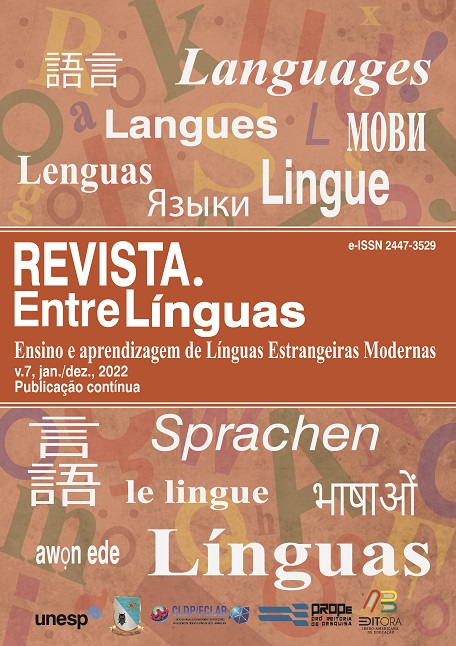Teaching elements of ancient turkish language in Azerbaijani dialects in Universities
DOI:
https://doi.org/10.29051/el.v8i00.16885Keywords:
Language in Azerbaijani, Teaching Elements, Education LinguisticsAbstract
As we know, the teaching of Azerbaijani dialects has been done in the linguistic faculties of the universities for many years. But in this training, we try to pay attention to the general characteristics of dialects, its differences and similarities. One of the most pressing problems of linguistics is the study of the development of the Azerbaijani language, as well as the ancestral roots of the people in the years of independence, the Azerbaijani linguistics and as a part of it, the Azerbaijani dialect at the level of modern requirements. Because dialects reflect the evolution and history of the people, many words, terms, and units of ancient phrases related to the life and ethnography of the people have been preserved in the dialect dictionary. As one of the Turkic tribes, the development of Turkish language elements in the language of the Azerbaijani people is also used as an ancient word.
Downloads
References
AHMADOV, B. I. Dictionary of etymology. Research, considerations. Baku: Altun, 2015.
AKHUNDOV, A. (ed.). Explanatory dictionary of the Azerbaijani language. Baku: East-West, 2006.
AKHUNDOV, A. A.; KAZIMOV, G. S.; BEHBUDOV, S. M. Dialectological dictionary of the Azerbaijani language. Baku: East-West, 2007.
ALIYEVA, S. M. Fuzuli's full archaic verbs in the Azerbaijan-Turkish “Divan”. Baku: Journal of Linguistics named after Nasimi of ANAS “Researche”, 2008
AWARDSOFTS. Kyrgyz-Russian Dictionary. Frunze: Main edition of KSE, 1985. Disponível em: http://www.translatos.com/en/. Acesso em: 05 mar. 2021.
AZIZOV, E. Historical dialectology of the Azerbaijani language. Formation and development of dialect system. Baku: Baku University Publishing House, 1999.
BAKHMUTOVA, E. K. Materials on dialectology. Kazan: Tatknigoizdat, 1955.
BAYRAMOV, İ. M. Vocabulary of Western Azerbaijani dialects, Baku: Science, 2006.
BEKTAEV. K. Big Kazakh-Russian Russian-Kazakh dictionary. Almaty: Altyn kazyna, 2001.
BURAN, A. The existence of the word Elazig. Ankara: TDK Publications, 2008.
CHAGHATAY, I. Etymology of the word Çınçavat. Ankara: Anniversary of Turkish Language Studies, 2019.
CHOBANZADE, B. V. Selected works. Baku: East-West, 2007. 5 v.
EROL, H. A. Meaning changes from Old Turkish to Old Anatolian Turkish. Ankara: Turkish Language Institutions Publications, 2008.
EYUBOGHLU, İ. Z. Dictionary of Turkish roots. Istanbul: Ramzi Bookhause, 1986.
GULENSOY, T. Dictionary of root information of Turkish words in Turkish. Ankara: TDK, 2007.
ISHBIRZIN, E., MAKSUTOVA, N., NAZERGOLOV, U. Hundreds of dialects of the Bashkir language. Information: Book, 2002.
ISLAMOV, M. Nukha dialect of the Azerbaijani language. Baku: Publishing House of the Academy of Sciences of the Azerbaijan SSR, 1968.
JAFAROGLU, A. Collections in the mouths of our eastern lands (mouths of Kars, Erzurum, Coruh lands). Baku: Science and education, 2018.
KASHGARI, M. Divanü lüğat-it-türk. Baku: Ozan, 2006.
NADELIAEV, V. M. Ancient Turkic Dictionary. Leningrad: Nauka, 1969.
SHIRALIYEV, M. SH. Baku dialect, Baku: Publishing House, 1949.
SHIRALIYEV. M. SH. (eds.). Azerbaijani dialectological dictionary. Ankara: TDK Publications, 1999. 2 v.
SOLDIER, I. V. Non-productive suffixes that create productivity in the Azerbaijani language. Baku: Science and education, 2015.
Published
How to Cite
Issue
Section
License

This work is licensed under a Creative Commons Attribution-NonCommercial-ShareAlike 4.0 International License.
Os manuscritos aceitos e publicados são de propriedade da Revista EntreLínguas. Os artigos publicados e as referências citadas na Revista EntreLínguas são de inteira responsabilidade de seus autores.
Transferência de direitos autorais – autorização para publicação
Caso o artigo submetido seja aprovado para publicação, já fica acordado que o(s) autor(es) autoriza(m) a UNESP a reproduzi-lo e publicá-lo na EntreLínguas, entendendo-se os termos “reprodução” e “publicação” conforme definição respectivamente dos incisos VI e I do artigo 5° da Lei 9610/98. O artigo poderá ser acessado pela rede mundial de computadores (Internet), sendo permitidas, a título gratuito, a consulta e a reprodução de exemplar do artigo para uso próprio de quem a consulta, desde que haja a citação ao texto consultado. Essa autorização de publicação 328 EntreLínguas, Araraquara, v. 1, n .2, p. 323-328, jul./dez. 2015 não tem limitação de tempo, ficando a UNESP responsável pela manutenção da identificação do(s) autor(es) do artigo. Os artigos publicados e as referências citadas na Revista EntreLínguas são de inteira responsabilidade de seus autores.











